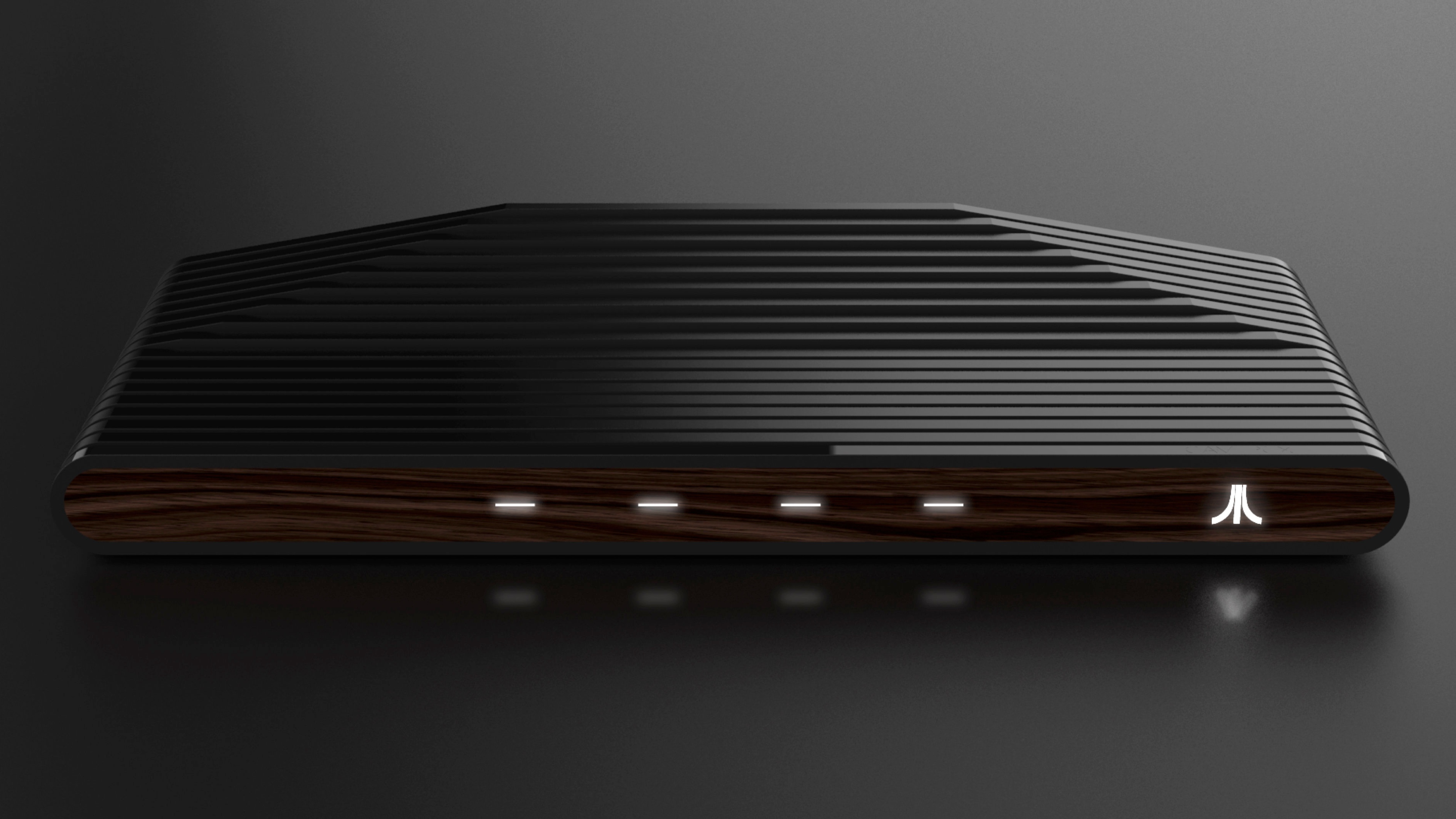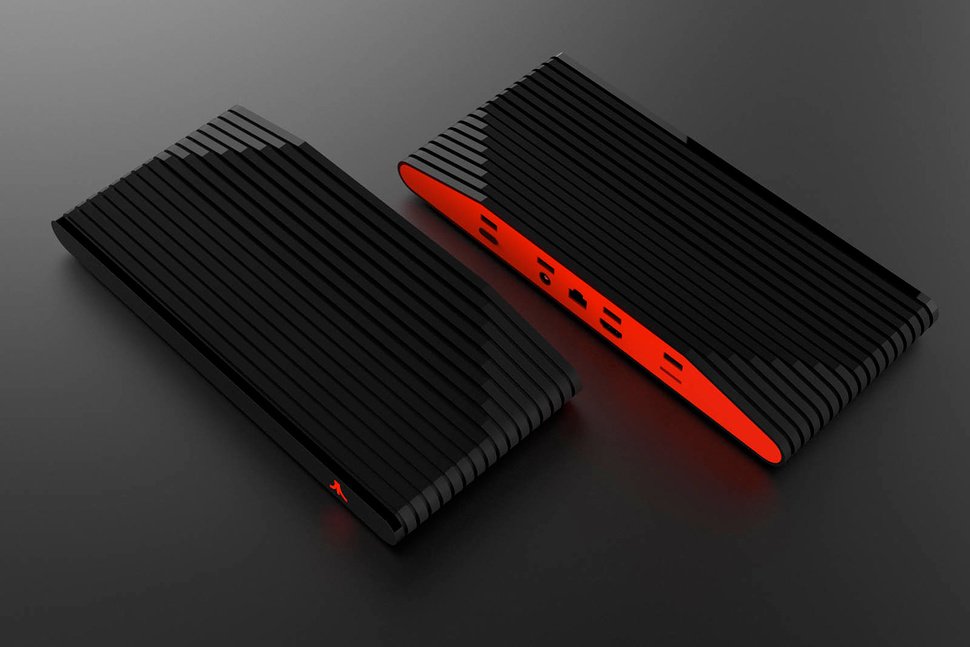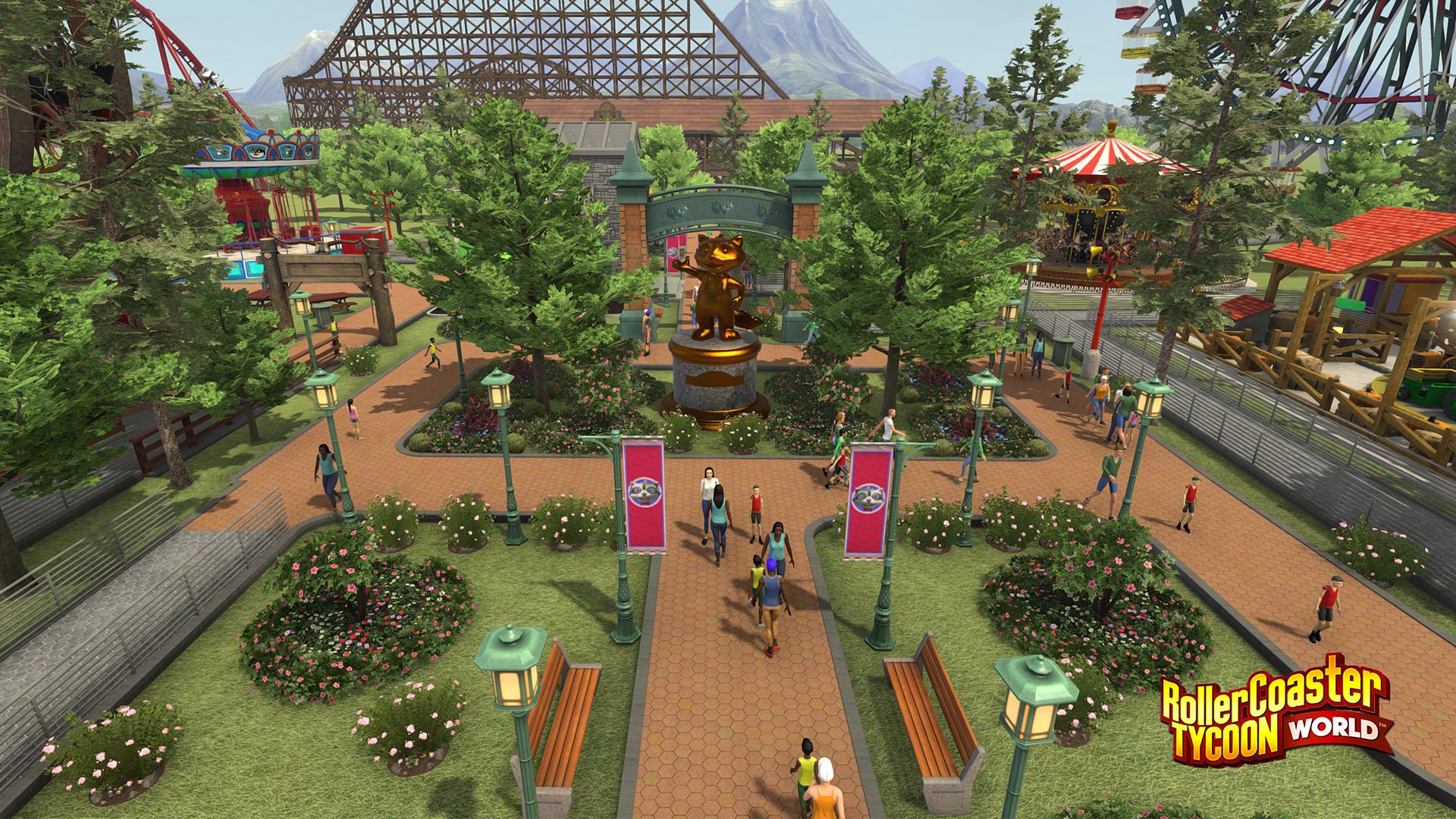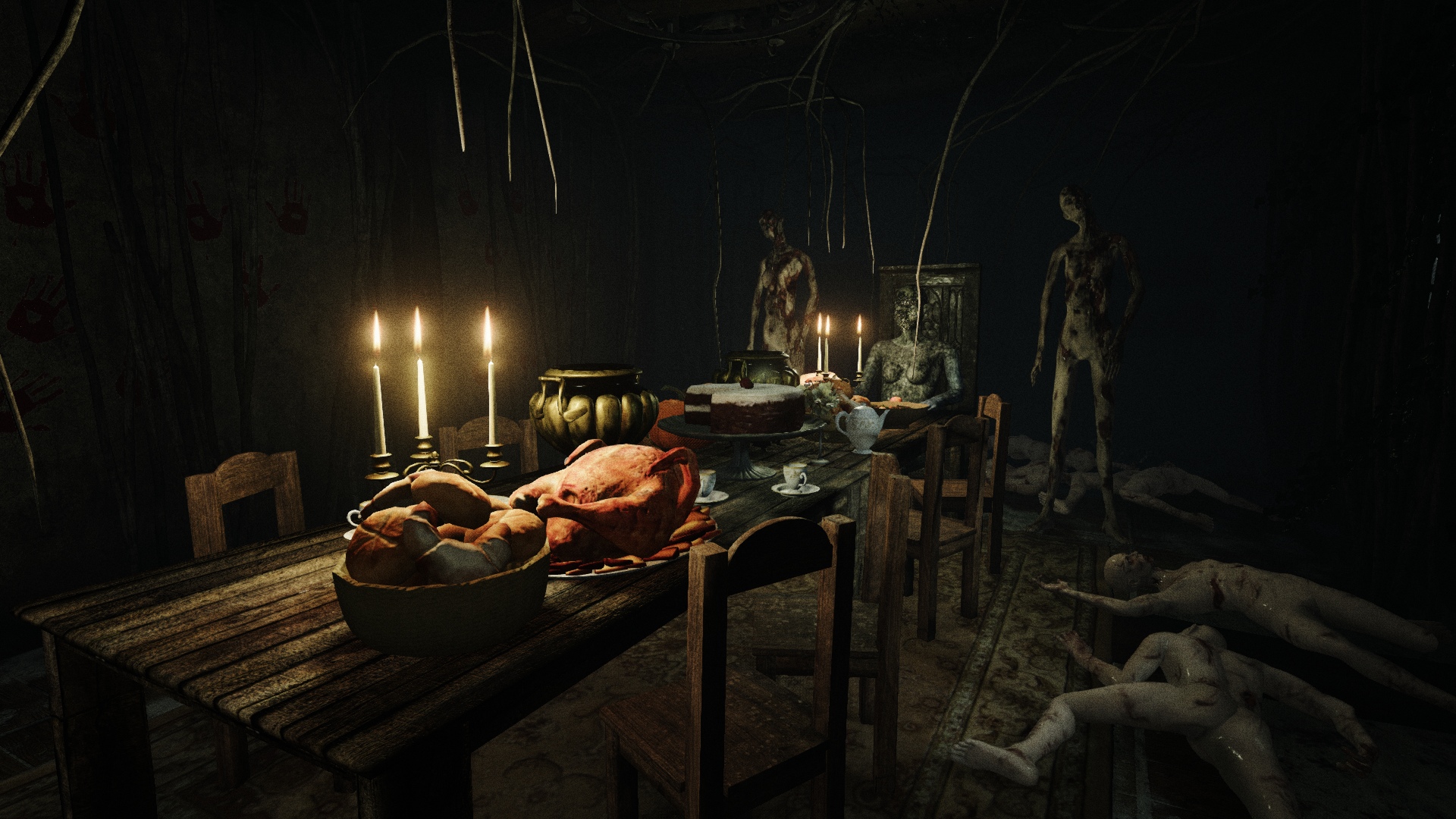Everything can change anything at any time. That’s what you typically hear from the social media sphere whenever something new is introduced, especially in the tech field. Sometimes it plays out exactly that way, like the iPhone. But most of the time our grand proclamations of what’s going to bring about upheaval is hot air. Take the newly announced Ataribox, for example.
Admittedly, I’m not entirely guilt-free here. I was right there at the head of the pack calling the Ouya the future of gaming. I was all in, pre-ordering one as soon as I scrapped the money together. Who would have thought so many older gentlemen liked 20 year old men singing happy birthday to them?
Then the disappointment set in quickly. The Ouya took a year to simply ship to backers and pre-orderers, the controller was garbage, the games terrible, and I developed a strange itch in my groin I can’t get rid of. After what seemed like only fifteen minutes, the Ouya collapsed into a scrapheap of decent ideas, poor execution, and over-ambition. It’s a good thing that Atari is behind the latest such game console then, they’re well-versed in such disasters.
Atari: Homecoming
Today, Atari crawled out of whatever cesspool they’ve been hiding under of late to give us news of the Ataribox. First announced months ago, it was initially believed that this would be another of their countless plug-and-play models that sought to capitalize on the success of the NES Classic. But in an email today sent to Atari newsletter subscribers paints a different picture. The newsletter speaks of “delivering classic gaming content,” as you’d expect from the company that lives like a vampire sucking its own blood to survive. But what’s grabbing everyone’s attention is where they mention “delivering current gaming content.”
That’s right. It appears that Atari* is making some form of modern gaming console* once again*. Okay, maybe we should pump the breaks first. This whole scheme has “FAILURE” written all over it. It’s in all caps, bright, sparkling letters, and your bro-friend from high school yelling “lol fail!” somewhere in the background.
Lofty Goals, or Lofty Stupidity?
The chances that Atari would actually make a console to compete with Sony, Nintendo, and Microsoft are astronomically small. I’m willing to bet money that if they tried they’d get crushed before the end of the year. It’s more likely they’re going for the micro-console market, similar to what the Ouya and a host of other copycats tried, which wouldn’t be any less stupid. The micro-console concept proved to be just as big a disaster as the Ouya itself. The MOJO, Shield, GameStick, and even Steam Machines and the PlayStation TV were all failures.
On the other side of the equation, modern Atari is itself a hot mess. For starters, the Atari everyone knows and loves from the days of the 2600 has been dead for decades. Modern Atari is actually Infogrames, who bought the Atari name from Hasbro Interactive and now wears the classic name and logo as a ghoulish skin mask. They’ve struggled financially for years, living off plug-and-play consoles and merchandise sales. They began a “turnaround strategy” in 2014 that would see them making new games in their classic franchises.
“Cowboy Developers”
It began with Haunted House: Cryptic Graves, a broken, glitchy mess that received terrible reviews. They followed it up in 2015 with Alone in the Dark: Illumination, a broken, glitchy mess that received terrible reviews, and Asteroids: Outpost, an online MMO that nobody played, received terrible reviews, and was later removed from Steam. Their reign of terror finally ended with RollerCoaster Tycoon World in 2016, a broken, glitchy mess that received terrible reviews.
Atari didn’t even develop any of these games either, instead hiring indie developers with either no experience, or a poor track record. Haunted House: Cryptic Graves bares the seal of Dreampainters Software, a studio that previously made Anna, a strikingly similar game – and that isn’t a compliment. RollerCoaster Tycoon World went through three developers, all of whom were unknown entities, until they settled on Nvizzio Creations. Pure FPS (formerly Plastic Piranha) is responsible for Illumination, the developers behind Rekoil, a game so broken it was unplayable at launch. It too eventually got removed from Steam. Salty Games created Outpost, neither studio having ever created a game before.
That’s the Smell of Success… or Not
The Ataribox reeks of a company desperately trying to capitalize on whatever’s popular, and wrapping it up in their nostalgic trappings. Here, Atari is chasing after the micro-console three years too late, AND the overpriced and overhyped retro console. Even the aesthetics of the console model themselves after the Atari 2600, ribbed for her pleasure and with a heaping helping of faux-woodgrain. I can almost appreciate the shear level of smug cynicism, like it’s so bad it’s good, but more so cynical it’s optimistic and heartwarming.
If Atari is going after the micro-console market, or if they truly are trying to compete with the big three, bless their little hearts, that leaves one question: What does this mean for indie developers? Either way, chances are good they’ll go the Nintendo Switch route and heavily rely on indie games and indie game ports to kick things off. But Atari doesn’t have the same cache as Nintendo, or the same home/mobile gimmick. What indie developer is going to want to spend time, and more importantly money, developing for a console that looks more like a pipe-dream?
Indie developers have surely learned their lesson for them litany of micro-consoles in the past. Putting your game on one of these things is bad for business. Remember how Ouya-exclusive Soul Fjord tanked Airtight Games? Remember how TowerFall only sold 7,000 copies on the Ouya?
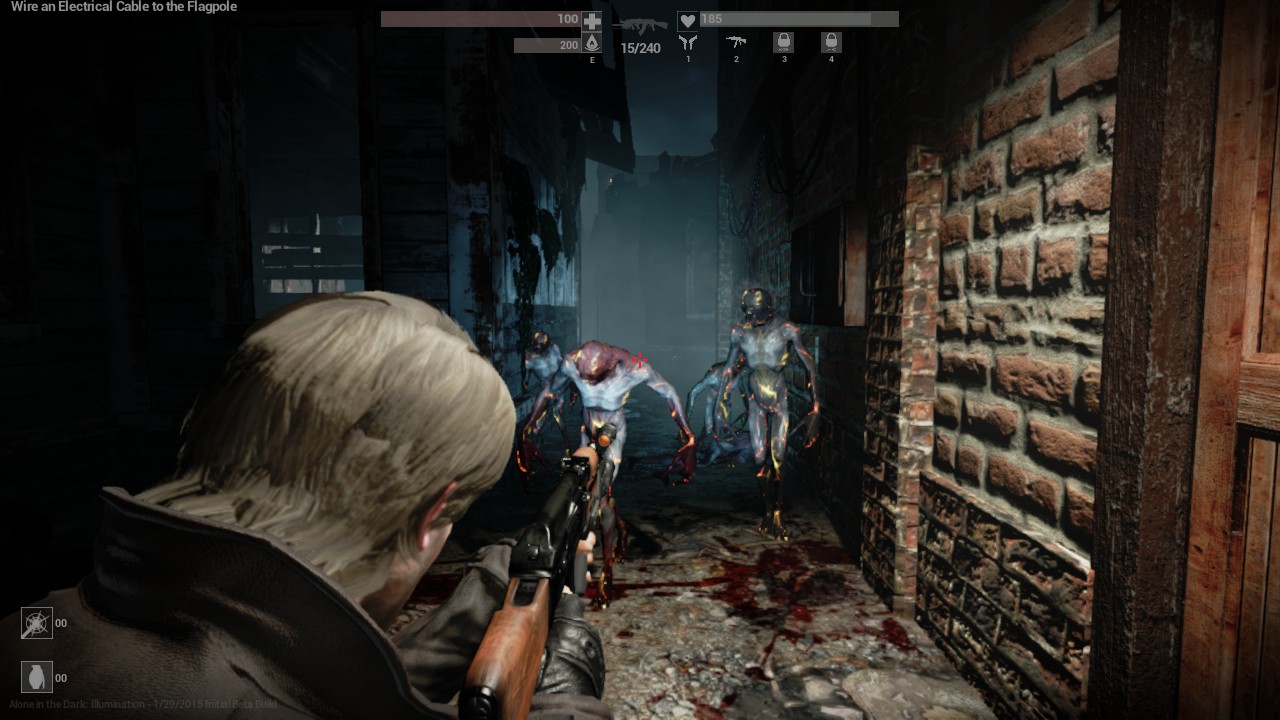
This is supposedly Alone in the Dark: Illumination…
I Mention Lobodestroyo Again, Because Why Not?
And yet Atari will sucker developers in anyway. It’s the same way they’re suckering in the social media world right now with their mock-ups. The same way they’ll sucker people in to buy the finished product, if it even comes to fruition. We don’t care about the Ataribox for the ‘box’ part of the name, we care about it because of the ‘Atari’ part. I don’t think many of us cared about the Ouya because of what it actually was. It was popular because of Kickstarter, which was still new at the time, to crowdfund a gaming console. How cool is that? It doesn’t matter what the console is like, we just gotta be part of it!
Imagine if a studio like Ackk spent thousands of dollars and months of time developing YIIK for the Ataribox, only for that version to sell 7,000 copies. Lobodestroyo might be the greatest game ever that isn’t actually released yet, but I don’t think even it could be a system seller. If Atari offered a new developer a load of money to make a big, AAA style game for them, it’s hard to imagine many developers turning it down, thinking it could be their big break. These kinds of gaming experiments often rely on indie developers. Every time it crashes and burns, and nobody feels it worse than those indies.
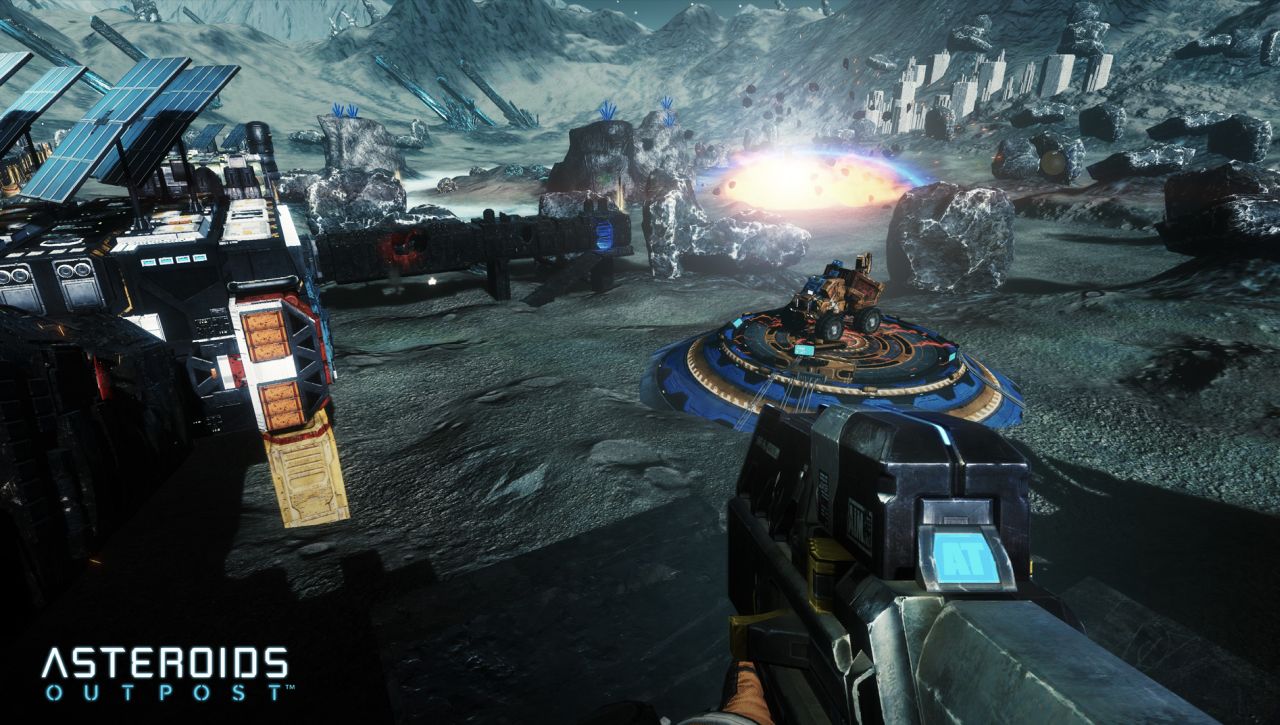
…and this is somehow Asteroids: Outpost
This is all just speculation of course. Atari could scrap the “current gaming content” idea. That line could even mean something as benign as an online store that’ll be updated with more retro games over time. There’s no guarantee the Ataribox will even see the light of day. But if it does come out, it could be a bad time for indie developers.
